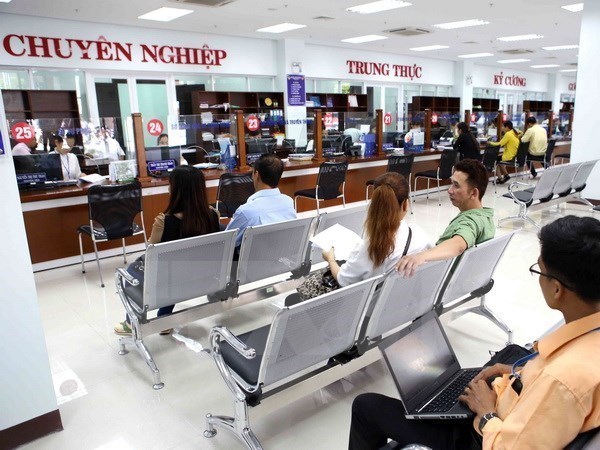Quang Binh reviews feedback collection on public services
The M-Score project, a pilot model to gather public opinions on the quality of public services at one-stop-shop offices via mobile phones, was reviewed at a recent seminar in the central province of Quang Binh.
 Illustrative image (Source: VNA)
Illustrative image (Source: VNA)Quang Binh (VNA) – The M-Score project, a pilot model to gather public opinions on the quality of public services at one-stop-shop offices via mobile phones, was reviewed at a recent seminar in the central province of Quang Binh.
The event was held by the provincial People’s Committee, in conjunction with the non-governmental organisation Oxfam in Vietnam and the Real Time Analysis (RTA) company.
The M-Score project began in Quang Binh in January 2016, aiming to create a channel between local authorities and residents to improve the quality of public services at the grassroots level, as well as strengthen transparency and accountability in State-run agencies.
The project has helped improve the locality’s administrative reform ability, increasing local residents’ confidence in staff working in State agencies and the State in general.
Reports at the conference said under surveys conducted by the RTA, more than 21,100 people joined interviews to score public administrative services in the locality.
At the beginning of the project, average public satisfaction score was 8.2. In 2017, the score increased remarkably, standing at between 8.7 and 9.2.
However, delays in processing applications remain common. The rate of delayed applications was 14 percent in 2016, and increased to nearly 15.4 percent in 2017.
This was one reason for reduced satisfaction in administrative procedure processing.
To save time for interviews and data collection, scoring systems have been installed in district-level one-stop-shop offices. Feedback from interviewees has been used to assess the performance of one-stop-shop offices, thus devising measures to improve the quality of public services.
Vice Chairman of the provincial People’s Council Truong An Ninh stressed the model contributes to fine-tuning the performance of one-stop-shop offices, adding that the agency will enhance its coordination with departments and sectors to expand the model to the commune and ward levels, and in health care and education.
Communication campaigns to raise public awareness of the scheme will be promoted in the future, he said.-VNA













